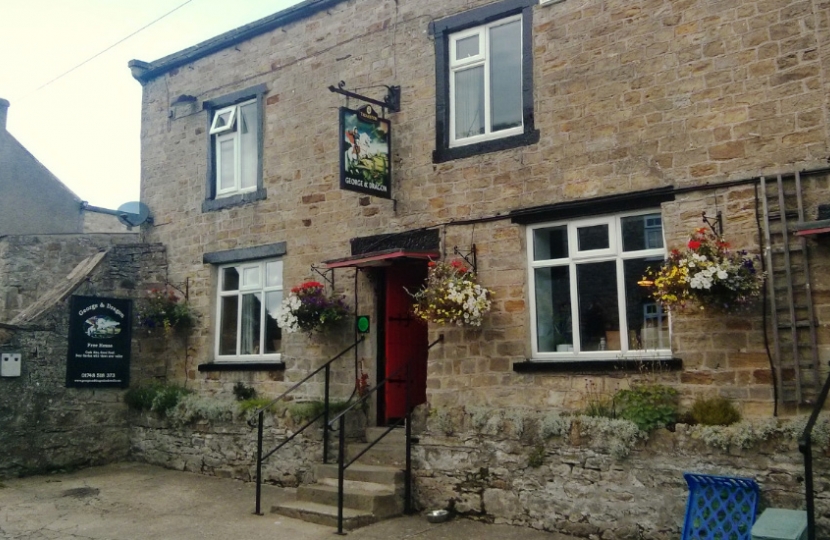
Yorkshire’s tourism boss Sir Gary Verity made some very interesting points about the way the rural economy works last week in Westminster.
Sir Gary was giving evidence to a group of MPs which is looking at how to get more visitors to the British countryside and out of the cities, particularly London.
The chief executive of the Welcome to Yorkshire tourism agency is a constituent of mine and as he also runs a sheep farm in the Dales I thought he would be an ideal witness to address the Environment, Food and Rural Affairs Select Committee on which I sit.
He talked eloquently about the interconnectivity of businesses and services in isolated parts of the UK, like our national parks, and in tourism how the village pub often relied on the B&B which relied on the village shop or farm shop supplier which in turn helped to sustain the farm business. If one closed it could cause real difficulties for the others.
He urged us to consider how we could ease what he called the “fragility” of rural tourism. I fully agree with Sir Gary on this and have recently started some research on the health of pubs in the constituency, which are not just important for tourism but the whole rural economy and its sense of community.
The numbers of pub closures in recent years are well documented and truly frightening. At one point in 2009 they were averaging almost 50 a week across the UK.
Thankfully the rate of closure has slowed more recently but in the latter half of last year it was still 27 a week, according to CAMRA, and of course many of those were country pubs.
It’s not all bad news however. There are signs of renewal. Many of our previously ailing hostelries have been acquired by owners committed to keeping them going with comprehensive refurbishments and great food and drink offers. Small groups like Provenance Inns and Ginger Village Pubs have shown the way with fresh investment and ideas.
Speaking of good ideas, I particularly liked Provenance Inns’ recently launched initiative to reimburse diners at their rural pubs with the cost of the taxi to get there, at the same time discouraging drink-driving, encouraging customers to travel and overcoming one of the primary reasons people give for not visiting a country pub.
We have also seen a growth in community-owned pubs like the very successful George and Dragon at Hudswell, near Richmond, which other communities fighting to retain or re-open their village pub, like Skeeby on the other side of Richmond, are looking at closely.
The Government has already acted to make life easier for country and would-be community pubs. Measures include freezes and cuts in beer and cider duties, the establishment of a Pubs Code Adjudicator to improve the lot of tied pub tenants, small business and rural rate reliefs which many country pubs will benefit from, and earlier this year a £3.6m support programme for community pub initiatives.
I think we may be able to do more and I will be working on this in the coming months to make sure pubs remain the hubs at the heart of rural communities, sustaining both tourism and the wider countryside economy.
